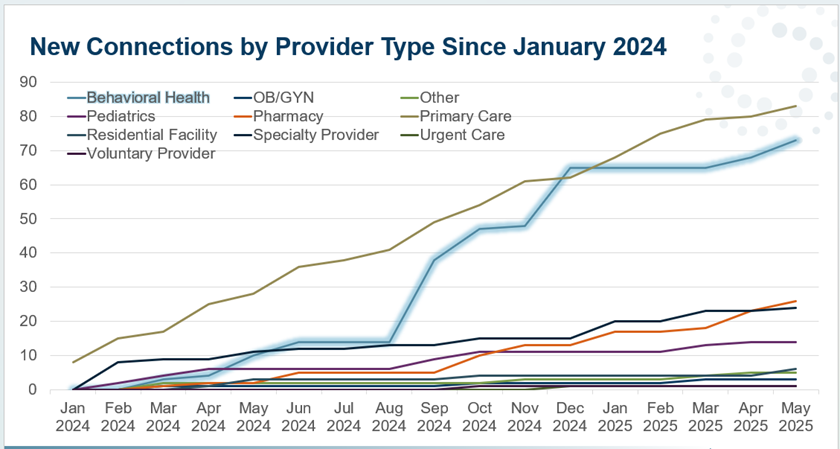The N.C. Health Information Exchange Authority hosted its quarterly Advisory Board meeting on Tuesday, June 17. During the meeting, executive director Sam Thompson spoke about the capacity of NC HealthConnex, the state-designated health information exchange, to serve behavioral health providers.
Since the beginning of 2024, more behavioral health providers have connected to NC HealthConnex than any other provider type except primary care. Moreover, four of the five heaviest users of the NC HeatlhConnex Clinical Portal are behavioral health providers.

The Clinical Portal gives health care providers with a Full Participation Agreement the ability to access patient health information via a secure, web-based application allowing behavioral health providers to see a patient’s physical health records to enable whole person care and assist with care coordination.
Read more about the benefits of NC HealthConnex for behavioral health providers.
This coordination is especially important to Certified Community Behavioral Health Clinics (CCBHCs). Kelly Crosbie, director of the N.C. Division of Mental Health, Developmental Disabilities, and Substance Use Services (DMHDDSUS), joined the Advisory Board to share more about the program.
CCBHCs began in North Carolina around 10 years ago as a result of the Protecting Access to Medicare Act. CCBHCs are tailored to the needs of the local population of individuals with severe mental illness, emotional disturbance or substance use disorders. They aim to provide a reliable place of care, easily recognizable to patients, where they can receive the mental and wraparound medical care they need. Seven CCBHCs operate in North Carolina currently.
The NC HIEA is poised to help specialized services such as CCBHCs. The recent integration of Social Determinants of Health data into the Clinical Portal and the effort to develop the capabilities to share patients’ responses to Health-Related Social Needs (HRSN) screening questions means behavioral health providers can see even more layers into a patient’s complete health picture.
